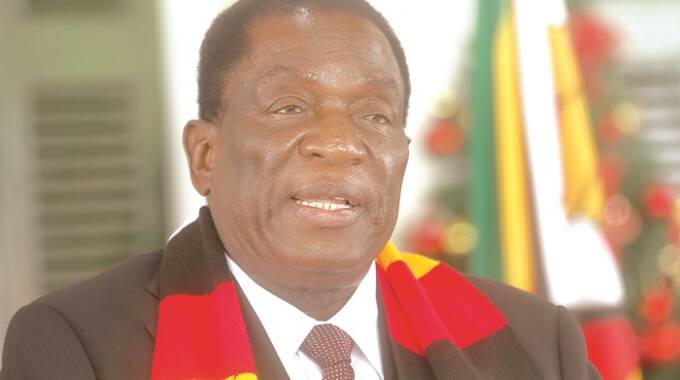
The Sunday Mail

Govt to intervene in poorly run councils
Sunday Mail Reporter
REPEATED and increased frequency in cholera outbreaks, which are mainly caused by poorly run local authorities, are a “cause for grave concern”, and Government will not hesitate to intervene to protect lives as part of broad, strategic interventions to end the public health menace, President Mnangagwa has said.
In his weekly column in The Sunday Mail, the President said the lasting solution to chronic cholera outbreaks lies more in service delivery, especially through provision of modern amenities and infrastructure that delivers clean, safe drinking water, as well as ensuring modern, efficient reticulation and waste management technologies and systems.
“While water bodies can be provided to potentially meet clean water requirements for our cities, it has become apparent that such a goal remains a pie in the sky until our local authorities are properly and efficiently run,” said President Mnangagwa.
“Water supply crises in most of our urban settlements are not explained by the absence of water bodies; rather, they are explained by water conveyancing systems which are either non-existent, inadequate, inefficient, obsolete and decrepit. The same also goes for uncollected garbage and broken sewer systems. In the absence of a drastic renovation of all our local authorities in the country, Zimbabwe will continue to suffer periodic outbreaks of preventable diseases, in spite of her many unused water bodies.”
He said investments in water bodies to serve the country’s two biggest cities — Gwayi-Shangani Lake to serve Bulawayo and Kunzvi Dam to supply Harare, among other towns — require efficient, honest municipalities for households to benefit.
Government — through the Ministry of Local Government and Public Works — he added, will ensure that all local authorities, regardless of who controls them, become functional and responsive to the public health needs of residents.
“Our towns and cities have been run down precipitously, thanks to gross maladministration by opposition-controlled local authorities. Clean and safe drinking water is either unavailable or erratically supplied,” he said.
“Garbage collection services are largely dysfunctional, while broken sewers are a common sight, especially in our high-density suburbs. To compound it all, unplanned and uncontrolled settlements have created a runaway urban sprawl where uncontrolled human settlements have outpaced the provision of basic services which guarantee public health and essential amenities …
“We have lost enough lives already to hefty public health failures which could have been prevented by the provision of efficient services and amenities. Government will not hesitate to intervene where local authorities show lacklustre performance, thus endangering our people.”
As part of a comprehensive plan to provide safe and clean drinking water — particularly in rural communities, where development of modern amenities and infrastructure has lagged behind the rapid pace of urbanisation — Government will be speedily rolling out the nationwide borehole drilling programme in the 35 000 villages around the country.
The programme, which President Mnangagwa said he considered a priority, is targeted to be completed within a year.
He described the recurring incidences of the cholera outbreak as an inexcusable indictment on poor social service delivery, which pointed to poverty-related vulnerabilities, and, therefore, warranted “broader interventions beyond the remedial”.
He, however, expressed satisfaction and optimism on the ability of the Second Republic’s programmes to solve challenges facing the country.
Production of water-treatment chemicals at a local university, for example, would likely guarantee provision of potable water.
“I am very happy that research on water-treatment chemicals at one of our applied research-driven universities has made a breakthrough. Bindura University of Science Education is already producing chemicals for water treatment, thus guaranteeing clean and safe water supply to all our urban and rural settlements,” he said.
“Repeated outbreaks of cholera give our country a negative global profile, thus discouraging and undermining our tourism.”



